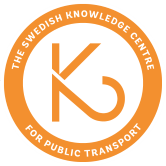Re-inventing Public Transport in a future of Smart Mobility: Roles, strategies, and collaboration
Re-inventing Public Transport in a future of Smart Mobility: Roles, strategies, and collaboration
Autonomous vehicles, the internet of things and the sharing economy will affect the way we travel in the coming decades. "Smart Mobility" is an umbrella term describing these changes. Smart Mobility can lead to more sustainable transport, attractive cities and improved rural livelihoods, but it can also lead to an increased demand for individual car transport and, thus, less sustainable and livable urban environments.
Research shows that a key for a positive development in this regard is the proportion of shared mobility services. New actors that offer such services have emerged, including private companies and non-profit associations. The question is how Public Transport Authorities strategically should position themselves in this new landscape. What kind of division of work tasks and what type of collaborations will the Public Transport Authorities have to establish in a future shaped by Smart Mobility?
The aim of this research project is to develop knowledge about Public Transport Authorities’ roles, strategies, and collaborative arrangements in a future of Smart Mobility. The methodology is comparative case studies of Nordic countries and metropolitan cityregions, including qualitative content analyses of strategic policy documents as well as interviews and workshops with key actors. The project will result in specific road maps of how the Public Transport Authorities strategically can position themselves in this new, emerging landscape.
